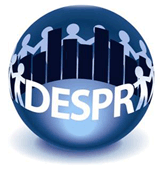What We Do:

Advancing Solutions for Drug Addiction
DESPR is looking for research solutions to these questions:
- What personal and environmental influences contribute to substance use patterns?
- How does technology contribute to substance use disorders?
- How can we get more large systems of care to adopt evidence based interventions?
- How can we promote population neuroscience?
- How can we minimize the risk of opioid use disorder among individuals experiencing pain?
- How can we better promote evidence-based screening and treatment of HIV related to drug use?
The mission of the Division of Epidemiology, Services and Prevention Research is to improve the nation's public health by promoting integrated approaches to understand and address interactions between individuals and environments. We are organized into the office of the director (OD) and three branches, Epidemiology Research Branch (ERB), Treatment and Recovery Services Research Branch (TRSRB) and Prevention Research Branch (PRB).
Contacts:
Office of the DESPR Director (OD)
- Carlos Blanco, M.D., Ph.D. - Director
- Bethany Deeds, Ph.D. - Deputy Director
Epidemiology Research Branch (ERB)
- Marsha Lopez, Ph.D., MHS - Branch Chief
- MeLisa Creamer, Ph.D. M.P.H. - Deputy Branch Chief
Treatment and Recovery Services Research Branch (TRSRB)
- Tisha Wiley, Ph.D. - Branch Chief
- Carrie Mulford, Ph.D. - Deputy Branch Chief
Prevention Research Branch (PRB)
- Amy Goldstein, Ph.D. - Branch Chief
- Alexa R. Romberg, Ph.D. - Deputy Branch Chief
Staff Listings:
Mailing Address:
Division of Epidemiology, Services and Prevention Research
National Institute on Drug Abuse
C/O NIH Mail Center
NIDA 3WFN MSC 6020
16071 Industrial Drive – Dock 11
Gaithersburg, MD 20892*
*(Use 20892 for U.S. Postal Service, 20877 for UPS and FedEx)
